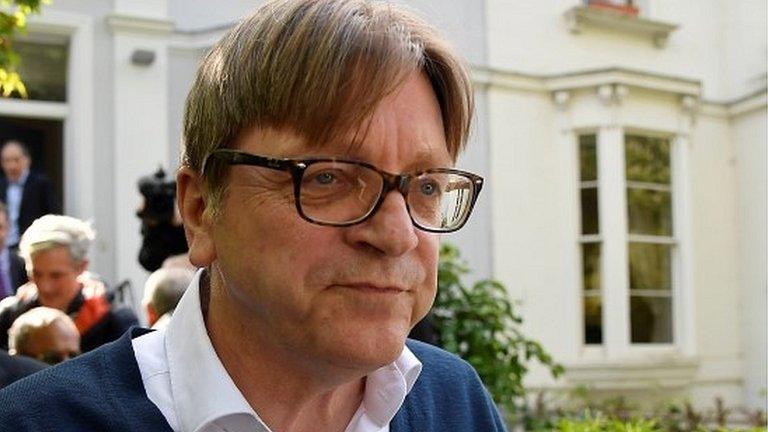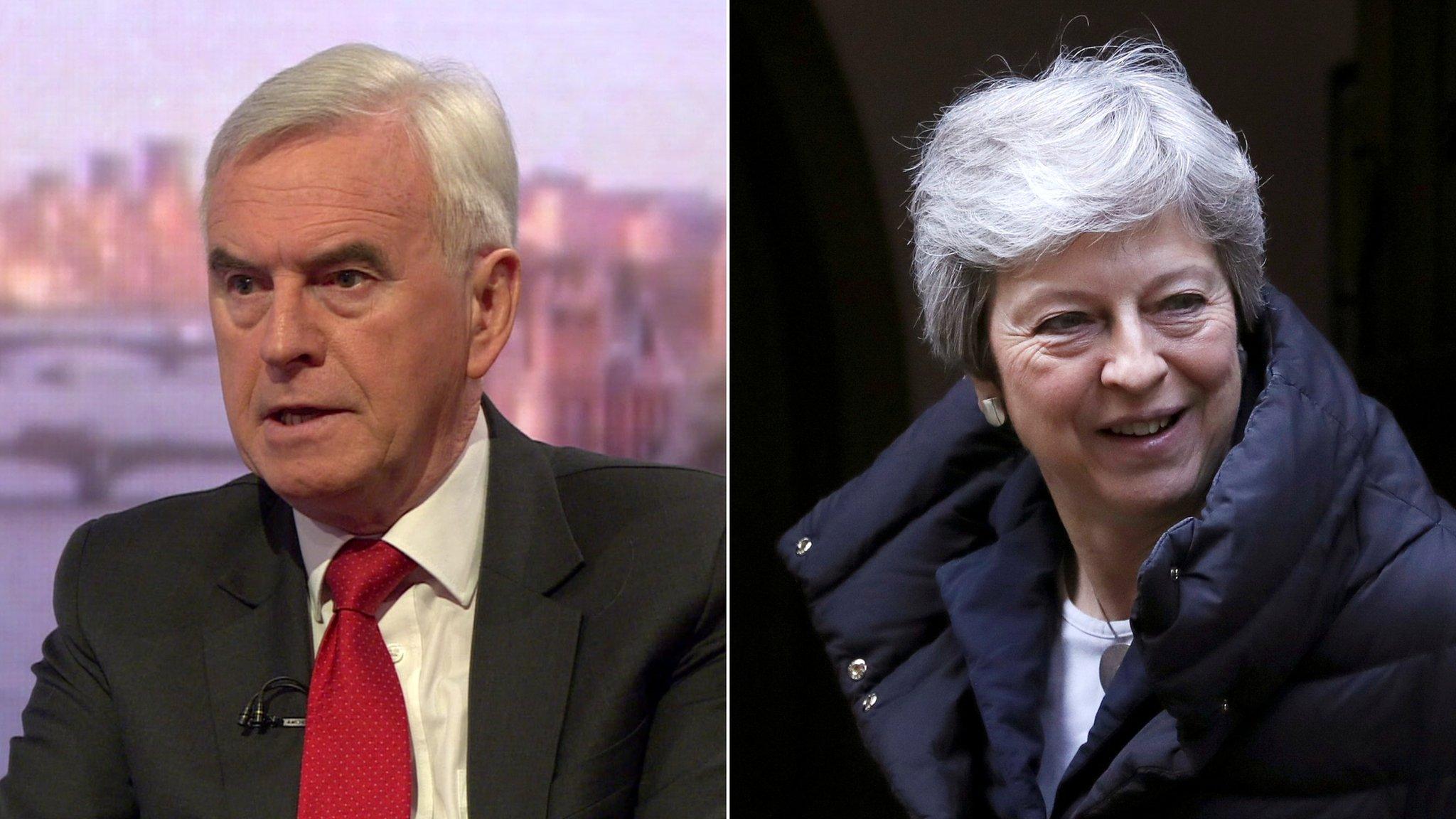Damian Hinds: European elections 'ultimate protest vote'
- Published
Education Secretary Damian Hinds: 'This is not about the leader of the party'
The European Parliament elections will be seen as an opportunity for the ultimate protest vote, Education Secretary Damian Hinds has said.
He told the BBC's Andrew Marr programme the elections would be difficult for the Conservatives and that "for some people this is the second referendum".
Brexit Party leader Nigel Farage told the show there had been a breakdown in trust between people and politicians.
Elections for 73 MEPs to the European Parliament will take place on 23 May.
The UK had been due to leave the EU on 29 March, but the deadline was pushed back to 31 October after Parliament was unable to agree a way forward.
The government is continuing to talk to the Labour party about progress in the Brexit process, and those cross-party talks are due to continue on Monday.
Meanwhile, shadow Brexit secretary Keir Starmer has told the Guardian, external that he doubts a cross-party deal lacking a confirmatory referendum could pass Parliament.
Mr Hinds said: "I don't think anyone is in any doubt these are going to be difficult elections for us - that much has been clear from the very start.
"For some people this is the ultimate protest vote opportunity. Actually, ironically this is, in a sense, for some people, this is the second referendum," he added.
Mr Hinds said he would have preferred the government "didn't have to go into talks with Labour" but asked: "What's the alternative?
"I disagree with Labour on many things... but there is some commonality of interest here.
"This is about our democracy, about our system and to repay the trust that people put in us we need to get things done for our constituents."
Shadow health secretary Jonathan Ashworth said Labour had put forward alternatives in its negotiations in the Brexit process.
"We're trying to negotiate that with the government, as I say it's not getting very far, but we are still engaging in those negotiations in good faith."
In a tense interview with the BBC's Andrew Marr, Mr Farage said that if the Brexit Party was successful in the European Parliament elections, he would ask for the party's MEPs to become part of the government's EU negotiating team.
MEP Nigel Farage says immigration "isn't the burning issue of the time" now
"We've got a two-party system that now serves nothing but itself," he said.
"There is a complete breakdown of trust between the people in this country and our politicians and frankly they revealed themselves to be grossly incompetent."
Ahead of European elections, two separate polls - by ComRes and Opinium - give Mr Farage's Brexit Party the biggest share of the vote with the Conservatives in fourth place behind Labour and the Lib Dems.

What's happening with the Brexit process?
The UK is now due to leave the EU on 31 October
Voters will go to the polls on 23 May to elect 73 MEPs to the European Parliament, after the government conceded elections would have to go ahead
The government is continuing cross party talks with Labour to find an agreed way forward
MPs have rejected Theresa May's negotiated deal with the EU three times in Parliamentary votes
The withdrawal agreement the PM reached with the EU has to be ratified by Parliament, and then turned into UK law in the form of a bill

Former prime minister Tony Blair expressed frustration with Labour's position on Brexit saying it was "clear they are not Remain in an unequivocal sense".
On Sky's Sophy Ridge On Sunday, the former Labour leader urged Labour supporters who can no longer vote for the party to endorse one which backs Remain.
He said it was "important the anti-Brexit side is larger and stronger than the Farage side" in the European elections.
"I do come across people who cannot vote for Labour, in which case I say 'don't stay at home - vote for any of the other parties'," he said.
- Published10 May 2019

- Published30 December 2020

- Published5 May 2019
